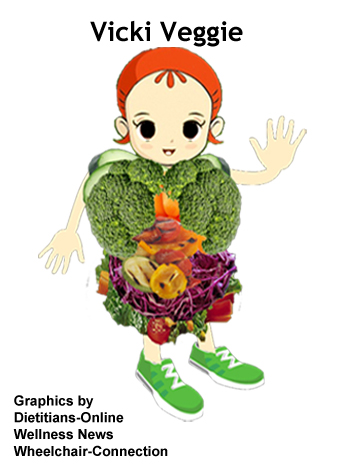During the month of January, we celebrate "Healthy Weight Week," which includes helping children develop a positive body image and a healthy relationship to foods. Michelle Obama is my choice as a role model for our children.
-Sandra Frank, Ed.D., RD, LDN
Editor, Wellness News / Dietitians-Online
This is not a political message, nor is it paid for by any political parties. I did not even vote for Obama. This message is in response to the negative news stories that criticize Mrs. Obama's eating habits and her personal appearance. These stories are not accurate and send a dangerous message to our children.
Dangerous Messages
Body Image and Children
We can help children develop a positive body image and relate to foods in a healthy way. Here are some suggestions from Womenshealth.gov.
1. Make sure your children understand weight gain is a normal part of development, especially during puberty.
2. Avoid negative statements about food, weight and body size. Never tell your children they would be prettier and have more friends if they lost weight.
3. Allow your children to make decisions about food. Make sure plenty of healthy meals and snacks are available.
4. Compliment your children on their efforts, talents, accomplishments and personal values.
5. Encourage schools to enact policies against size and sexual discrimination, harassment, teasing; support the elimination of public weigh-ins and fat measurements.
6. Keep the lines of communication open between you and your children.
7. A parent is a role model, set an example by eating healthy and exercising.
Sarai Walker, the author of Building a Better Body Image states, "Include women of all ethnic and racial groups, age groups, sizes, abilities, and sexual orientations in your circle of friends. When we expose ourselves to the rich and varied experiences of all women, our narrow ideas about beauty and bodies often change.




































